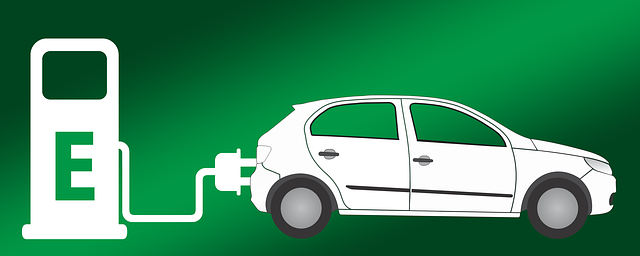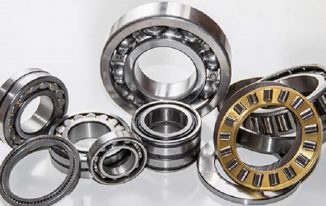Do electric cars survive in India?
People have been anticipating the launch of electric cars since years. Few cars were introduced to India market in late 90’s but they failed to attract customers. The latest electric cars look so attractive in terms of looks as well as specifications; they are expected to give tough competition to conventional four-wheelers. Electric cars are the very good choice for the people looking for environmentally friendly vehicles. Electrified future isn’t too far away from us, so soon we can see many of them on the roads. Right now in India, only the two electric cars are available in the passenger market.
Cheaper vehicles to run and maintain
A number of benefits accompany with electric cars when compared to regular petrol or gas based models. As lot of concentration is kept on generating power through renewable sources, the demand for these energy conserving vehicles will rise in upcoming days. They are even more eco-friendly and efficient that cars running on gas. Reports suggest the carbon emission levels in the atmosphere can b brought down if more and number of electric cars is used in India. As of today, the number of electric vehicles available in the market is very low but we can see a drastic change in the count when more models hit the market in future.
Reasons why government is Focusing on Electric cars in India
You all know that global working is rising to dangerous levels throughout the globe; hence government of India is looking to prevent air pollution in all possible ways. It is expected that Indian roads would be filled with electrical vehicles by 2030.
- They don’t emit harmful gases due to the absence of internal combustion engines.
- The cost of operating electric cars is very less as there is no need of using petrol to commute on roads.
- Introduction of cars running on electric current will reduce you overall
- As these cars are built with the latest technology, you don’t need to worry about safety while traveling distant locations.
- The noise produced by electric cars, so no doubt that noise pollution will come down in future.
- You need to put oil and lubricate engines while using engines running on petrol, hence the maintenance cost increases. Coming to electrically powered engines, the maintenance cost will come down as you don’t need to send it to the service station.
Now we can see many cars moving on Indian roads, and the number would definitely increase in near future. Oil resources are also coming down, hence the fuel charges are increasing and it is the main reason why people are looking for cheaper modes of transport like electric cars. You will be not only saving a huge amount for yourself as well as your family. These vehicles will not only show a positive impact on the environment but also on your economy. Current supply stops immediately when any accidents occur protecting you from threats. So you can drive safely without any worries.
Future of Electric cars manufacturers in India
Electric cars are very smooth and surprise you with high torque, the entire power and accelerator will be transformed to wheels. Home recharging is another good open, you no need to wait in long queue lines at petrol bunks and pay bills. Electricity is available everywhere, so you can recharge it at any time. Many manufacturers are trying to design innovative current oriented vehicles as the future of electric cars in India is very bright. The cars are very beneficial to use in regions with the good source of power, automobile manufacturers are aiming to target India as the government and people are encouraging eco-friendly vehicles.
In order to encourage the use of electric cars in India, It ordered to use these vehicles in public sector offices and associated units. It wants only EV’s to run on India roads by 2030 and string efforts are being made to make it true. This will surely bring down the greenhouse gas emission rate, thereby reducing the environmental damage. No doubt about the future of electric cars in India as it is going to be bright and the cars are expected to bring huge profits to manufacturers. Not only are EVs efficient and eco-friendly, they also reduce the monthly expenditures that you spend on fuel
Electric cars – Best alternatives to petrol and diesel vehicles
It is widely accepted that electrical vehicles leave a small impact on the environment when compared to present day fuel cars. Let us see how they can do well in India and what their future prospects are.
- As electric cars have zero emissions, the government is encouraging to use them instead of conventional vehicles. So we can expect many people to rush for automobile showrooms when any attractive car is released into the market.
- Only current is needed to commute on four wheels, so an electric car can be charged easily with power received at your residence.
- The government may provide special schemes or tax cut downs for buyers who come forward to buy eco-friendly vehicles. Such moves can increase sales, so it will have the good impact on future of electric cars in India.
- The resale value will go high than expected when the demand for these cars increases.
- They are cheaper to operate but recharging takes a long time.
Electrical vehicles tend to convert most of the power given to them whereas conventional vehicles don’t give much output as these hybrid vehicles do. The easy maintenance options will also shift Indians mind to choose hybrid cars. Electric vehicles range is increasing day by day with the development of new technology. If you are planning to buy one, just do little research and you will be shocked by seeing at the price they are available.
The growth of Li-ion batteries usage in India is giving some hope on the good future of electric cars. The batteries are easily rechargeable and they are designed to meet the advanced needs of the modern era. While there are many benefits with EV’s, even the disadvantages are in equal numbers.




